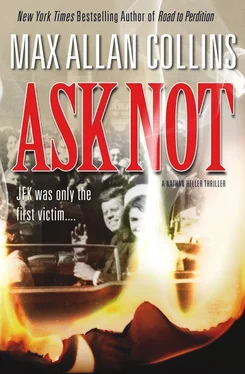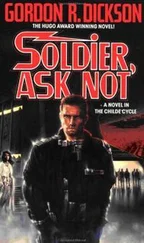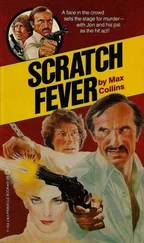“Rich people? Powerful people? Corrupt people? That kind?”
“There’s no truth to any of this, Mr. Heller.”
“What happened to Nate?”
“If you harass me, I’ll get a court order. If you go public, I’ll sue you for slander or libel. Or maybe the people you’re accusing will do something else.”
“I’ll get depressed, you mean? Suck on a tailpipe?”
“What do you want from me?”
“Here’s an idea. Now, please don’t consider this blackmail, although that’s what it is. I don’t care to go toe-to-toe with you Texas boys. I might wind up with a branding iron up my ass or become a rare white lynching victim. But that Joseph Plett you mentioned, his wife and kids got screwed out of a $500,000 insurance settlement because the insurance company doesn’t pay out on suicide.”
“Do I look like I have half a million dollars in my pocket?”
“No, but Lyndon’s oil and arms buddies spill that kind of bread, not to mention that guy Edward Clark’s law firm. Pass that along as a compassionate request for the welfare of a family who became casualties in that situation comedy starring Billie Sol Estes. Why is he still alive, by the way?”
And now a barely perceptible sneer. “You think you’re very smart, don’t you, Mr. Heller?”
“Smart enough, generally.”
“Maybe not this time,” he said, and he punched me in the belly.
Fucking sucker punches, anyway.
I was doubled over, which made it convenient for me to jam my head in his gut, though because of his blow I didn’t have much power, just enough to make him stumble back a step. He swung and missed with his right and I swung my right and clipped him on the nose, just a glancing blow. His left came around and caught me under the right eye, though not with the power his other hand might have brought. But his back was to a building and I gripped him by the sport jacket and slammed him into the stone.
It jarred him, but he managed to shove back at me, and I lost my footing and went down on my ass. He came over and kicked me in the side, but when he tried to take a second helping, I caught him by the foot and shoved him backward, his arms windmilling.
He managed not to fall, but by the time he had regained his balance, I was facing him with the nine millimeter in my hand and about two feet between us.
The bad thing, the really nasty thing, is that he didn’t seem to give a shit. He smiled, really smiled big for the first time, seeing the gun. He flicked the fingers of both hands in his own direction.
“Go ahead, Heller. Shoot me. You’ll hate yourself in the morning if you don’t.”
Shoot him with a gun that wasn’t licensed in the state of Texas. Shoot him on a public street where several cars had already gone by and not slowed down to get involved. Shoot him and let thousands of answers die with him. Shoot him and maybe go to jail, and how had that worked out for Ruby? Or Oswald, for that matter?
He was laughing as he walked off somewhat unsteadily — from the booze or the fight or both — in the direction of that after-hours club.
I put my gun away and hobbled back to the Colony Club, my side hurting like hell, a rib busted maybe, and somehow got up the stairs and into the nightclub, where Jada, in a plaid cloth coat and very little makeup and looking like the Janet she really was, was coming from backstage.
She put her hands on her hips and said, “Well, look who’s here! I thought you were standing me up!”
“I changed my mind,” I said, and passed out.
Someone once said that there was no excuse for Dallas even existing — that it sat in the midst of nothing and nowhere, the land around it dry and black and providing would-be farmers with no more than a crop of headaches and heartbreak. Calling the Trinity — alternately a trickle or a flood — a river was typical Texas bluster. No oil derricks towered in or near Dallas, nor was there gas or sulphur. Back in the 1870s, the railroad came only because some shady businessmen tricked and/or bribed the Houston and Texas Central Railway to build there.
Nothing here happened by accident, nature, or happenstance. Men made Dallas. Men made their city a leader of banking and insurance and manufacturing, and the Southwest’s center of fashion and culture, too. In 1964 it was home to half a million people, most of whom would gladly tell you that Big D did everything bigger and better — bigger steaks, fancier parties, more air-conditioning, taller buildings, better-dressed women, better-looking girls. Or anyway that was their attitude before Jack Kennedy made their town his last stop and their improbable city became a national disgrace.
I was staying with Janet Adams, aka Jada, stripper or (if you will) exotic dancer, in a high-rise luxury apartment house in an area once dominated by grand old homes as lovely as the trees lining the banks of Turtle Creek. Some of those lavishly landscaped residences were still there, but many had been pushed out by apartment complexes, filled with stewardesses, stenographers, salesgirls, models, and receptionists.
It was Thursday, early afternoon. In a lounge-style deck chair, I was stretched out wearing a bathing suit but also a short terry-cloth robe, to cover up my bandaged ribs and some nasty bruising. On the cement beside me, on a towel, Janet lay on her tummy, her red hair pinned up like a crazy turban, her bikini top unsnapped, so she could soak up sun and get even darker. Periodically I rubbed some suntan lotion on her. Otherwise, I was just living behind my Ray-Bans, watching girls in their twenties swim and sun — a relative handful at half a dozen, mostly stewardesses I would venture, since the other single girls living here were probably at work. They were ridiculously beautiful. How I wished rubbing suntan lotion on Janet and ogling bikini-clad young women paid a living wage.
Though this was my second day as Janet’s guest, it was my first time down by the pool. Tuesday night, Janet and two other dancers at the Colony Club had gotten me down to her car, a white Caddy convertible, parked in the same next-door ramp as my rental Galaxie. I barely remember this, but I do know that I have never had less fun in the company of eager-to-please strippers.
I also barely remember the trip to the emergency room at Parkland Hospital. I was X-rayed, found to have two cracked (but not broken) ribs, got taped up, shot up (with Demerol), and given a five-day supply of drugs (Demerol again).
I woke up in Janet’s bed late the next morning. She was there, a nurse in green halter top and short shorts, to walk me to the john, feed me some more Demerol, and put me back to bed. That evening, I got up, was able to get myself to the john and then avail myself of a tan cotton robe (no shortage of abandoned men’s clothing at Janet’s), and joined her in the living room of a very nice but very underfurnished apartment. In fact, the furnishings were right out of a thrift shop, what little there were.
We sat at yellow-Formica-topped table that June Cleaver would have tossed out around 1956, eating TV dinners and sipping cans of Schlitz in her modern kitchen. Swanson frozen fare was all she cooked for herself, she informed me. What the hell — it was better than I’d got in the service. She was still in the dark-green shorts outfit — it went really well with her red hair — and was having the meat loaf. I had Salisbury steak.
“What’s the story on this place?” I asked. “It’s got to run you one-fifty a month, easy.”
“Two bills,” she said, chewing meat loaf.
“Meaning no offense to a gracious hostess, but the interior decoration is strictly Early Goodwill.”
She grinned at me. “Don’t you get it? I’m part of the suitcase set.”
Читать дальше












